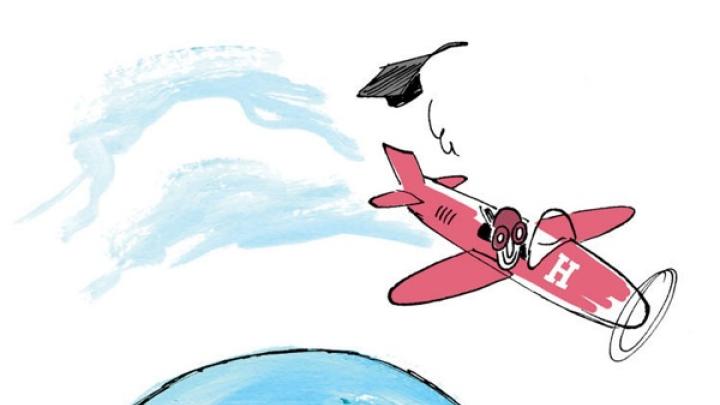Study abroad, now encouraged and integrated into the College experience, was largely absent in the late 1980s, recalls Jay Winthrop, principal of Douglass Winthrop Advisors LLC, a registered investment advisory firm in Greenwich, Connecticut. He urges Harvard to make international exposure a priority—and urges students to take advantage of any chances to travel abroad to learn a language, gain different perspectives on areas of study, and experience other economic, educational, and cultural systems. “The world looks far more global to me now than it did 25 years ago, meaning more is asked of young people entering the workforce,” he says. “As well, effective leadership in most professions demands an understanding of the complex forces and cultures buffeting our world.” Students also have other options to learn about cultural diversity: from their peers as well as from “visiting foreign heads of state, or government officials, business leaders, writers, and other leading figures from outside the United States” who often speak on campus. “The question is: how best do we encourage young people to become better ‘citizens of the world’?”
Leadership, although essential in most professions, is “under-taught,” Winthrop asserts. To foster leadership skills within the curriculum, he favors an education with survey courses in multiple disciplines that preserves the freedom inherent in Harvard’s “liberal arts ecosystem.” Although Winthrop and his undergraduate peers were drawn to Brown’s less structured curriculum, “I have come to feel that quite the reverse is more useful,” he says. “I would encourage students to leave Harvard with a broad education, including the study of international economics, history, mastery of a foreign language, proficiency in writing and speaking, et cetera…and to resist the urge to dive too deeply into a single topic.” Such breadth breeds well-grounded leaders. “The world needs more Churchills and Mandelas,” he explains, “leaders with good judgment, an ability to listen, and to communicate a worthy shared purpose.”
Winthrop would also like to see students gain more “real world” professional experience before graduation. He envisions a program staffed by undergraduates and alumni that offers pro bono consulting services to organizations, giving students “the chance to explore a field of interest, to meet alumni with relevant experience, and to learn the demands and expectations of work in a professional setting,” while enabling alumni to fulfill “a desire for public service or to work on projects of personal interest.”








